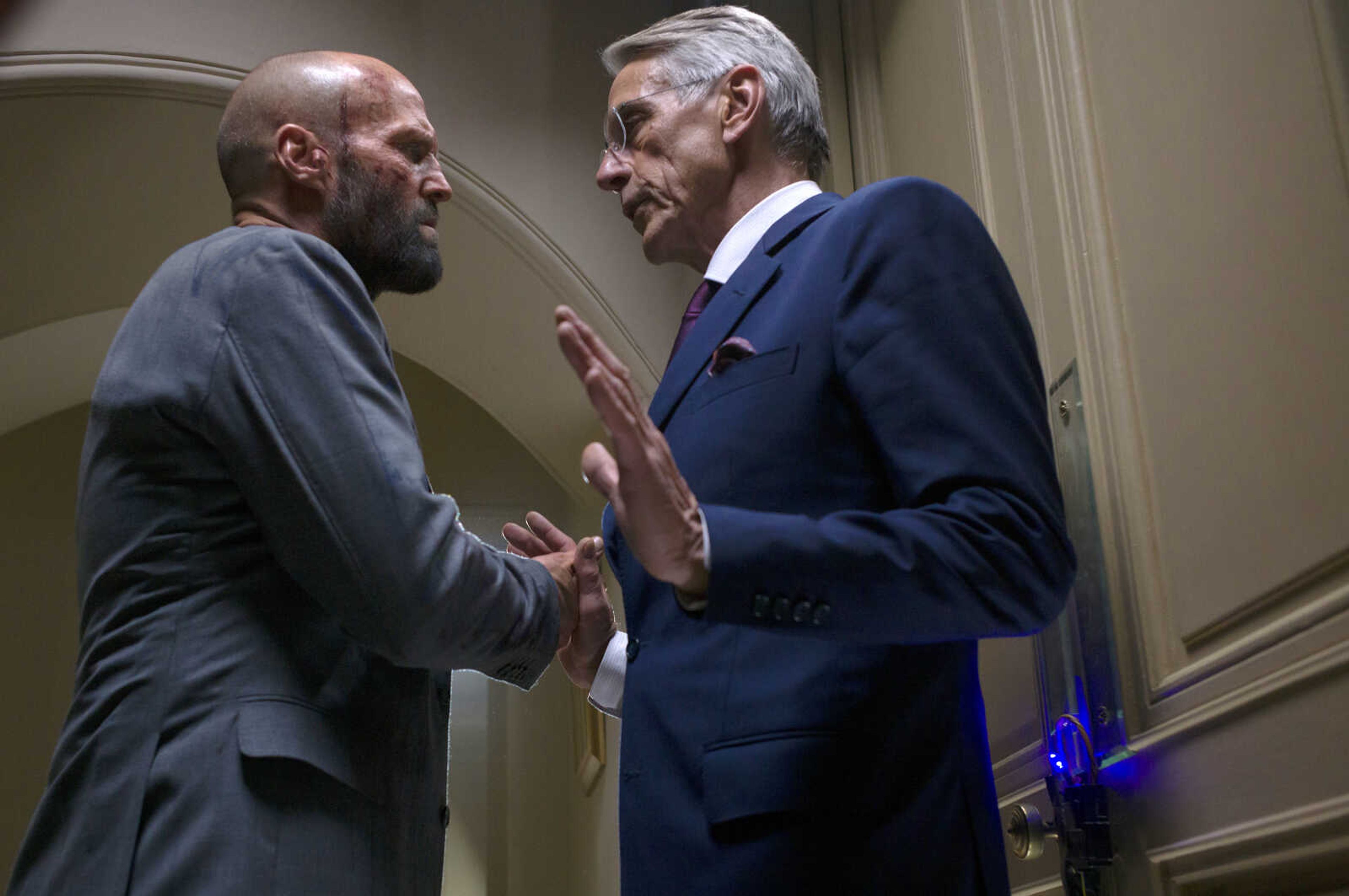Liberal authors fight back
NEW YORK -- If you wanted to write a book about the books coming out this fall, you could call it "Liberals Fight Back." "I think liberals are now responding with the aggressiveness they perceive in their adversaries," says Joe Conason, a columnist for The New York Observer and Salon.com and one of many on the left to have a book published this fall...
NEW YORK -- If you wanted to write a book about the books coming out this fall, you could call it "Liberals Fight Back."
"I think liberals are now responding with the aggressiveness they perceive in their adversaries," says Joe Conason, a columnist for The New York Observer and Salon.com and one of many on the left to have a book published this fall.
Accusing liberals of treason, immorality and countless other failings, conservatives such as Ann Coulter and Sean Hannity have proved to be so popular that two publishers, the Penguin Group and the Crown Publishing Group, recently formed imprints for right-wing books. The operators of the Book-of-the-Month Club have formed a new club just for conservative works.
Now, prepare for voices raised from the other side, among them Al Franken, who relentlessly needled Fox commentator Bill O'Reilly at last June's booksellers convention. Franken follows up in print form with "Lies and the Lying Liars Who Tell Them: A Fair and Balanced Look at the Right."
The book is already a best seller on Amazon.com, thanks largely to a Fox lawsuit over rights to "fair and balanced," a phrase the news channel trademarked. On Aug. 22, a federal judge in New York denied a Fox request to block publication, calling the claim "wholly without merit."
"Lies" will be an unofficial liberal trademark this fall, as demonstrated by the title of Franken's book, Conason's "Big Lies" and David Corn's "The Lies of George W. Bush." Just as praise for President Bush and allegations of liberal bias in the media have been standard for conservative books, liberals are questioning Bush's honesty and the honesty of the media's coverage.
"People who consider themselves left of center have been getting increasingly angry," says Corn, a correspondent for The Nation, a liberal magazine. "One reason is the strength of right-wing opinion in media culture and another is the Bush presidency has really gotten under the skin."
Those making similar points, although refraining from the "L" word on the cover, include Molly Ivins, Jim Hightower, Alan Colmes and New York Times columnist Paul Krugman. Gore Vidal, Michael Moore and Noam Chomsky, three popular authors to the left of Conason and other liberals, also have books coming out, as does Studs Terkel, who interviews aging activists in "Hope Dies Last."
"The books from the left strike me as an obvious reaction to Bush," says conservative commentator Tucker Carlson. "And for people who buy them, it's a way of voting against him in an off-election year."
Many books will be either by or about Democratic politicians. Several works commemorate the 40th anniversary of President Kennedy's assassination -- including a compilation of quotes and anecdotes, "The Uncommon Wisdom of John F. Kennedy," and a collection of rare photographs, "Remembering Jack," which includes an afterword by Tom Wolfe.
Among contemporary Democrats, presidential contenders John Edwards, John Kerry and Howard Dean will release books, as will Senate Minority Leader Tom Daschle.
Strong sales are expected for two books by former Clinton officials: "Madame Secretary," the memoirs of former secretary of state Madeleine Albright; and "Dealing With an Uncertain World," reflections on finance from former treasury secretary Robert Rubin.
Conservatives also will have a publishing voice this fall, with new books from O'Reilly, Carlson, Robert Bork and David Limbaugh, brother of Rush. Former Rep. Dick Armey offers "Armey's Axioms" and Laura Ingraham urges Barbra Streisand and other liberal entertainers to "Shut Up and Sing." Nancy Reagan is profiled by former presidential aide Michael Deaver in "Nancy" and former first lady Barbara Bush describes her post-White House years in "Reflections."
"The interest in political books is just phenomenal, from the left and the right," says Bob Wietrak, vice president of merchandising at Barnes & Noble, Inc. "We've got so many coming out that in October we're setting up special political science-cultural affairs tables at our stores."
Publishing has struggled much of the year, with sales hurt both by a slow economy and the U.S.-led invasion of Iraq, when many would-be customers stayed home and watched the news. Wietrak says books such as Franken's will help the industry.
"Sales have been soft, but these media-driven books bring the customers into the stores," he says. "They create a lot of excitement."
The period of national unity after the events of Sept. 11, 2001, is long over; interest in books about the attacks also has fallen. Only a handful of related works will be published, including Gail Sheehy's "Middletown, America," about a New Jersey township that lost more than 30 people, and Gerald Posner's "Why America Slept," which criticizes the intelligence community.
Mariane Pearl's "A Mighty Heart" is a tribute to her late husband, Daniel Pearl, the Wall Street Journal reporter kidnapped and murdered in Pakistan. His death is investigated by French philosopher Bernard-Henri Levy in "Who Killed Daniel Pearl?"
Other notable nonfiction books include "Mountains Beyond Mountains," Tracy Kidder's study of an American doctor based in Haiti, and Stephanie Nolen's "Promised the Moon," the story of 13 women who trained to be astronauts in the 1960s.
Conflicts past and present will be covered. National Public Radio correspondent Anne Garrels reports from Iraq in "Naked in Baghdad." James Bradley's "Flyboys" praises seven World War II pilots. David Maraniss' "They Marched Into Sunlight" looks at how the Vietnam War and the protest movement were faring in October 1967.
"I really adored Maraniss' book," says Carla Cohen, co-owner of Politics & Prose, a Washington, D.C.-based bookstore. "Not only does he handle the events of that time really well, his book resonates through decisions being made today, like in Iraq."
Some notable nonfiction books will emerge from fiction writers. The memoirs of Gabriel Garcia Marquez, an international event when published in Spanish last year, will be published in an English translation. Two popular American novelists, Amy Tan and Scott Turow, also have new nonfiction works.
Tan's "The Opposite of Fate" is a collection of personal essays. Turow's "The Ultimate Punishment" is a critical look at the death penalty, an issue he analyzed in last year's novel, "Reversible Errors."
"I made this book nonfiction because, in my view, there's no place for dogmatism in the novel. I'm not going to discuss in a novel whether the death penalty is a deterrent" says Turow, a partner in the Chicago office of Sonnenschein, Nath & Rosenthal, a national law firm.
"This book is a true lawyer's memoir; it's a reflection of the arguments that have engaged me about this issue."
Turow doesn't expect to publish a new novel for at least another year. But fiction is coming out from such familiar names as John Grisham, Stephen King, Patricia Cornwell, David Baldacci and Sara Paretsky. Others with new books include Nobel laureate Toni Morrison, Jonathan Lethem, J.M. Coetzee, Jhumpa Lahiri, Mario Vargas Llosa, David Guterson, Peter Carey and Frances Itani.
This fall also marks the long-delayed arrival of works by three acclaimed authors: Maxine Hong Kingston, Shirley Hazzard and Edward P. Jones.
Kingston, best known for the fictionalized memoir "Woman Warrior," will release her first full-length book since the late 1980s, the semi-fictional "The Fifth Book of Peace." Hazzard's "The Great Fire" is her first novel since "The Transit of Venus," published in 1980 and winner of the National Book Critics Circle prize. Jones, last heard from in 1992 with the story collection "Lost in the City," has completed the novel "The Known World."
Reasons for their absences vary profoundly. Kingston lost her original manuscript in a fire in 1991. Hazzard discarded an early version of "The Great Fire" and was also looking after her ailing husband, critic and translator Francis Steegmuller. He died in 1994.
Jones cites a combination of factors. He is a slow worker who doesn't like writing anything until he has the story worked out in his mind. He had a computer incompatible with other online systems. And sometimes, frankly, he didn't feel like working.
"There were days I decided I wasn't in the mood, so I just put it off," he says.
Not all people who write fiction start out as fiction writers. Steve Martin, the actor and comedian who had great success three years ago with the novella "Shopgirl," returns with "The Pleasure of My Company." Madonna debuts as a children's writer with "The English Roses."
The season will also see fiction from those better known for filmmaking (Barry Levinson), TV sitcoms (Andy Griffith), songwriting (Lou Reed), testifying before Congress (former Iran-Contra defendant Oliver North) and even occupying the Oval Office (former President Jimmy Carter).
"I had already written a lot of nonfiction books that were autobiographical or historical, so I thought fiction would be a provocative and exciting adventure," says Carter, who has authored "The Hornet's Nest," a novel set during the Revolutionary War and based, in part, on his family's history.
"It gave me a chance to be completely free and uninhibited in describing the characters and many things that happened to them would surprise me. ... At the end of the book, my main character was involved with two women and I still don't know which one he chose."
Connect with the Southeast Missourian Newsroom:
For corrections to this story or other insights for the editor, click here. To submit a letter to the editor, click here. To learn about the Southeast Missourian’s AI Policy, click here.








